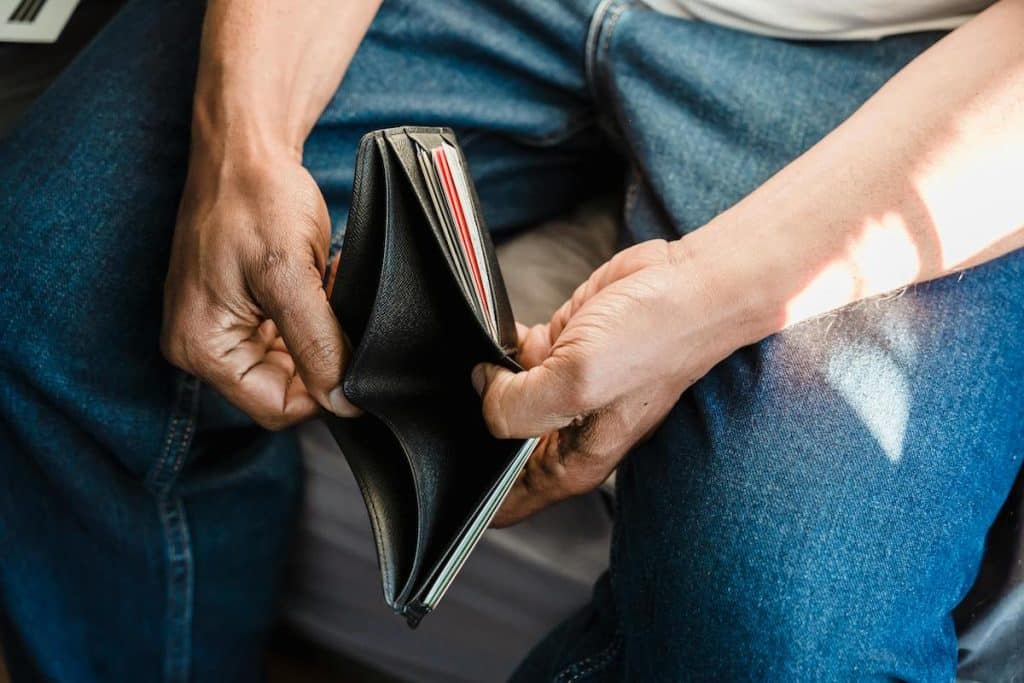Table of Contents
Black Friday is around the corner; regardless of that, there seems to be a sale happening every month. It’s easy to get tempted by the many offers dangled in front of us; and we may feel like we’re losing out if we don’t make the most of a sale. While it’s fine to indulge in a treat from time to time, uncontrolled binge shopping can lead to more serious consequences for both your mental and financial health.
These are the reasons for why you may be shopping impulsively and how you can manage this less-than-ideal habit.
Why do we end up Binge Shopping?
‘Feel good’ factor of purchases
As hard as it is to resist, it’s normal for us to have material desires. Whether it’s the next shiny smartphone or a new outfit, it’s always nice to have new things. There’s actually a scientific basis for this. Did you know that shopping actually has an effect on our brain chemistry as well?
When we make a new purchase, our brain releases dopamine — which is also known as the ‘feel good’ chemical that makes it feel like we’re being rewarded for certain actions. Unfortunately, because of this dopamine release, our shopping behaviours may inadvertently get reinforced; and we want to continue shopping because of the feelings of happiness and satisfaction that follow it, due to the increase of dopamine in our brains.
Influence of advertisements
Raise your hand if you’ve ever had a catchy advertisement stuck in your head. Shopping platforms have certainly made an art of creating jingles that are sticky and addictive. Because they’re stuck in our heads, it’s possible that a subliminal affection and preference for these brands develop; eventually leading to a purchase down the road.
In fact, a study has shown that advertisement affects compulsive shoppers disproportionately more compared to the general population. This means that advertisements are more likely to entice a compulsive shopper to make more impulsive purchases, and carry on their binge shopping.
A coping mechanism
Lastly, compulsive shoppers may find that they’re indulging in binge shopping because it’s a way to cope with their boredom or stress. The dopamine release from a fresh purchase is a good counter to the negative feelings that an individual may have; and the shopper may eventually rely on these new buys to boost their mood.
With the myriad of shopping apps now available, the storefront is always in reach. When we’re bored or feeling upset, what else do we do apart from look at our phones? It’s a dangerous combination indeed.
Tips to Reduce Binge Shopping
You don’t have to let this shopping habit control your finances. There are a few techniques you can adopt in your daily life, to try and reduce the amount of impulsive purchases you’re making. It may be difficult at the start; but with practice, you may find it easier to resist the lure of a new advertisement.
Cutting out Temptations
The best way to stop your habit is to create a positive environment that supports your desired behaviour. The first step you should take would be to delete all – and yes, every single one – shopping apps from your phone. If you can’t go cold turkey to that extent, minimally, you should switch off all push notifications from these apps. Similarly, you can avoid going to busy shopping areas during sales periods, like Black Friday or the Great Singapore Sale.
The main idea would be to cut out all temptations, so you have little opportunity to slip up. By deleting your apps or avoiding shopping outlets, you reduce your chances of seeing an enticing offer; thus, cutting out the possibility of seeing a trigger for an impulsive purchase.
Being Mindful about Purchases
Apart from changing your physical environment, you should also reset your mental environment. Take some time to reflect on the reasons behind your past few purchases: was it a need, or was it a want? If it had been a want, then what had prompted you to press ‘check out’ immediately, rather than thinking it through?
The next time you decide to purchase something, make the effort to pause before you pay for it right away. Try to delay your purchase by at least a week, so that you have time to think about whether you truly need it. You may be surprised to find that you’d already forgotten about the item by the time the end of the week rolls around.
Setting a Budget
As every good personal finance guide advises, make sure you have a budget for yourself. You can try the 50-30-20 rule: 50% on needs, 30% on wants, and 20% on savings. Ensure that you have already set aside the amount for your 70% before you even look at the 30% on your extra purchases.
This helps to become more disciplined about your spending habits, as you are aware of the amount that you can spend on indulgences. After all, we’re not saying that you can’t buy anything nice for yourself – you just need to make sure you’re not over-spending beyond your means.
Should I get professional help?
If left unchecked, binge shopping may spiral out of control. Signs of impulsive shopping slipping into dangerous territory include: 1) if you’re accumulating a lot of debt due to your spending habits, 2) immense anxiety or stress around your purchases, and 3) inability to control your spending even after trying to adopt healthier habits.
Binge shopping may actually be a sign of a more serious mental health issue, or due to underlying sources of stress in your life. Professional help – such as speaking to a mental health expert – can be a good source of support, should you feel that your spending habits are beyond your control. You can reach out to any of our therapists at A Space Between for non-judgemental, supportive help.
References
- https://www.ncbi.nlm.nih.gov/pmc/articles/PMC4117277/
- https://www.investopedia.com/ask/answers/022916/what-502030-budget-rule.asp
- https://health.clevelandclinic.org/retail-therapy-shopping-compulsion/
- https://www.everydayhealth.com/emotional-health/what-is-shopping-addiction/
- https://www.verywellmind.com/what-is-compulsive-shopping-disorder-2510592
- https://time.com/6235522/why-shopping-is-addictive/
- https://www.choosingtherapy.com/compulsive-shopping/
- https://www.straitstimes.com/tech/tech-news/more-online-shoppers-influenced-by-social-media-ads-paypal-study

An experienced health & wellness writer, I am a story-teller at heart. For me, writing is a way of weaving together the little details that make our existence meaningful and significant into a beautiful, larger story.




